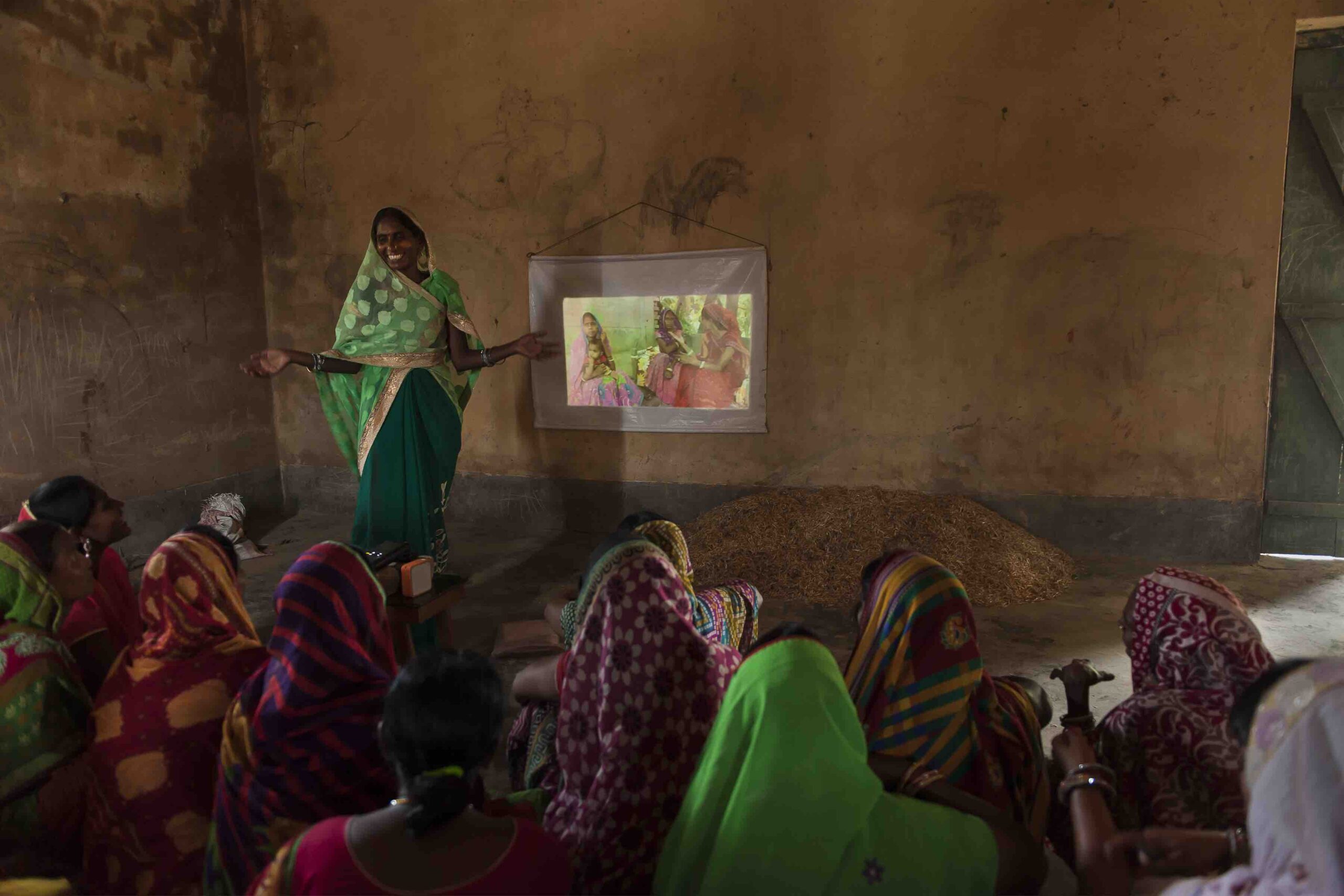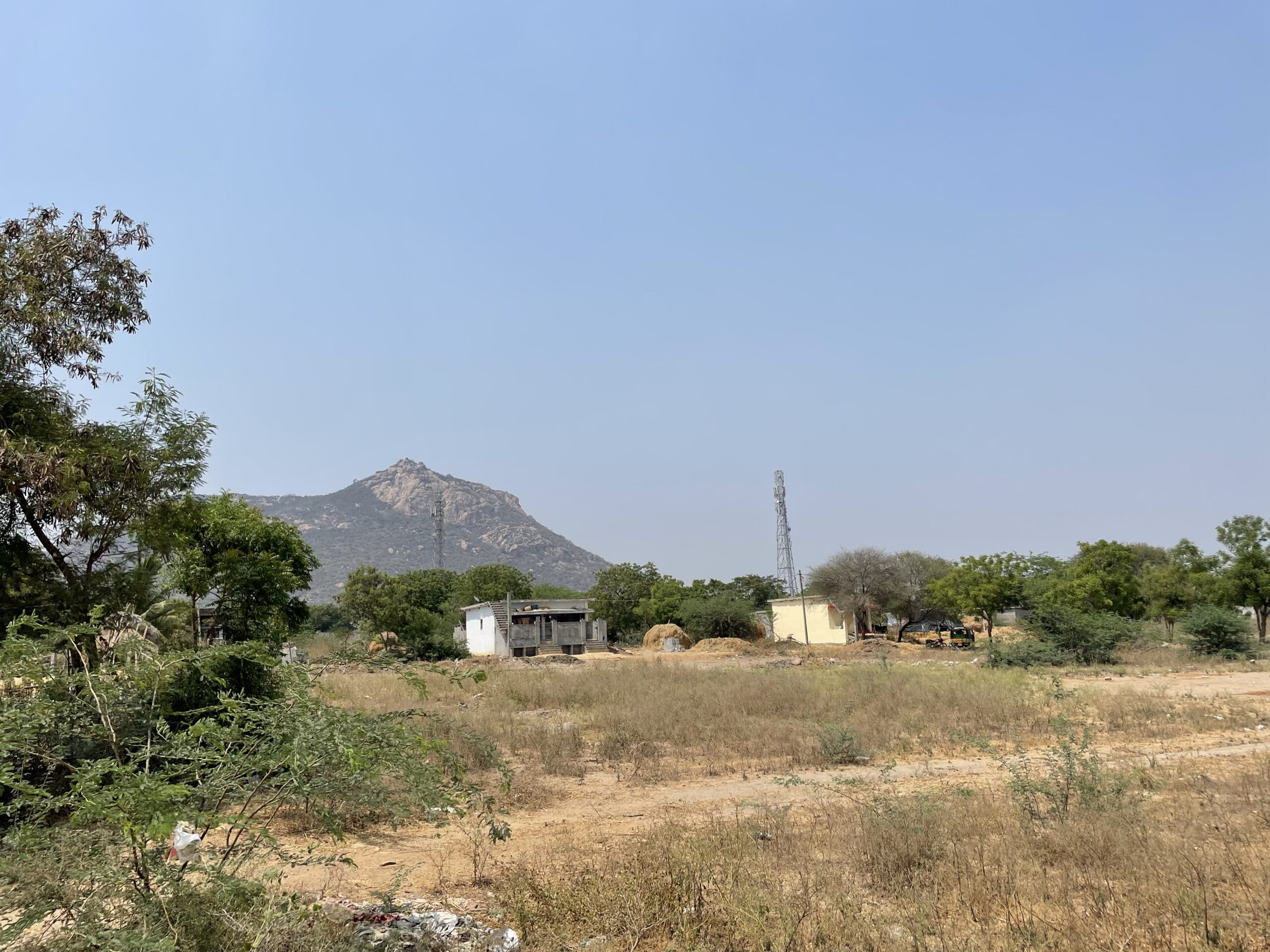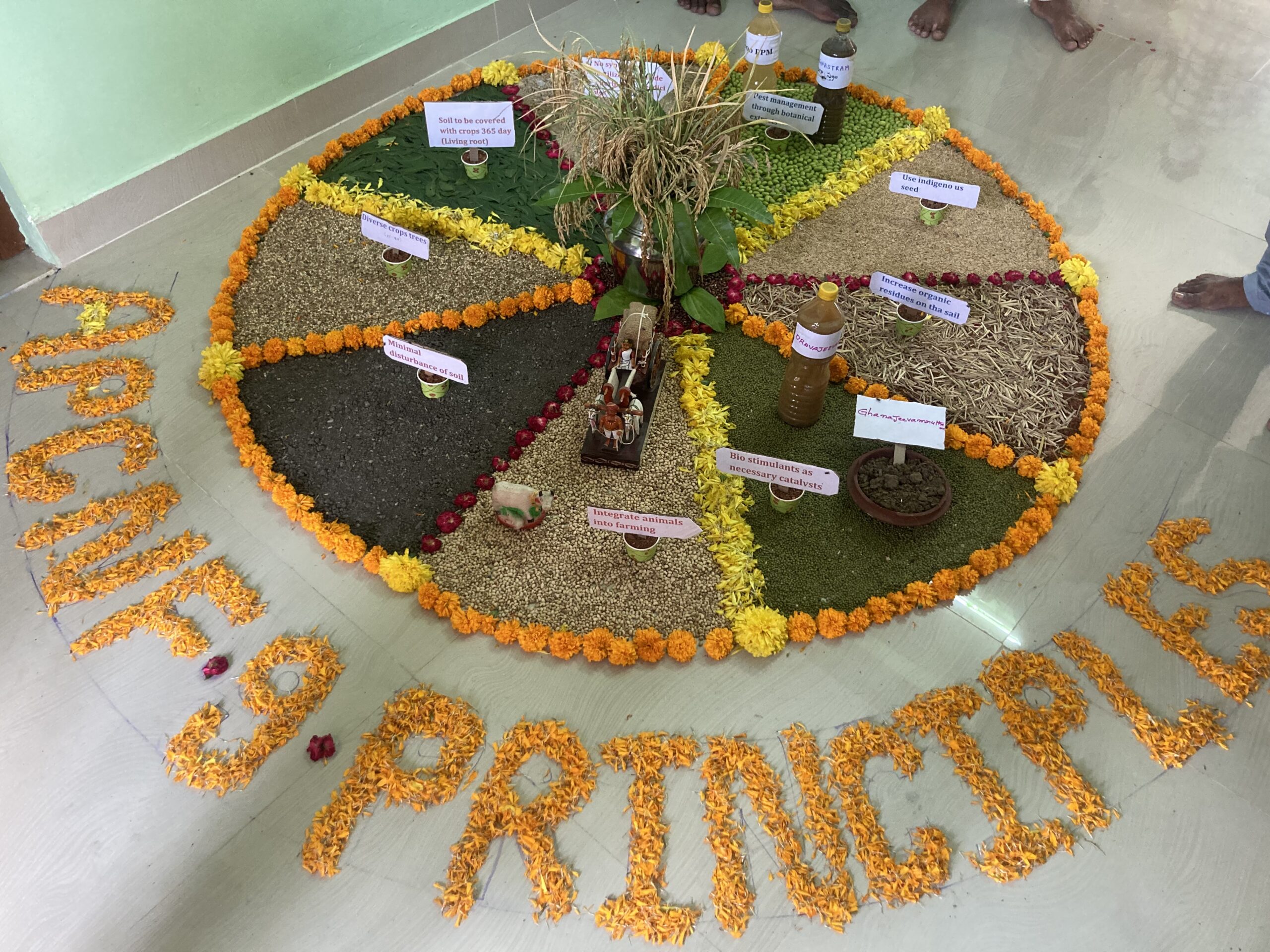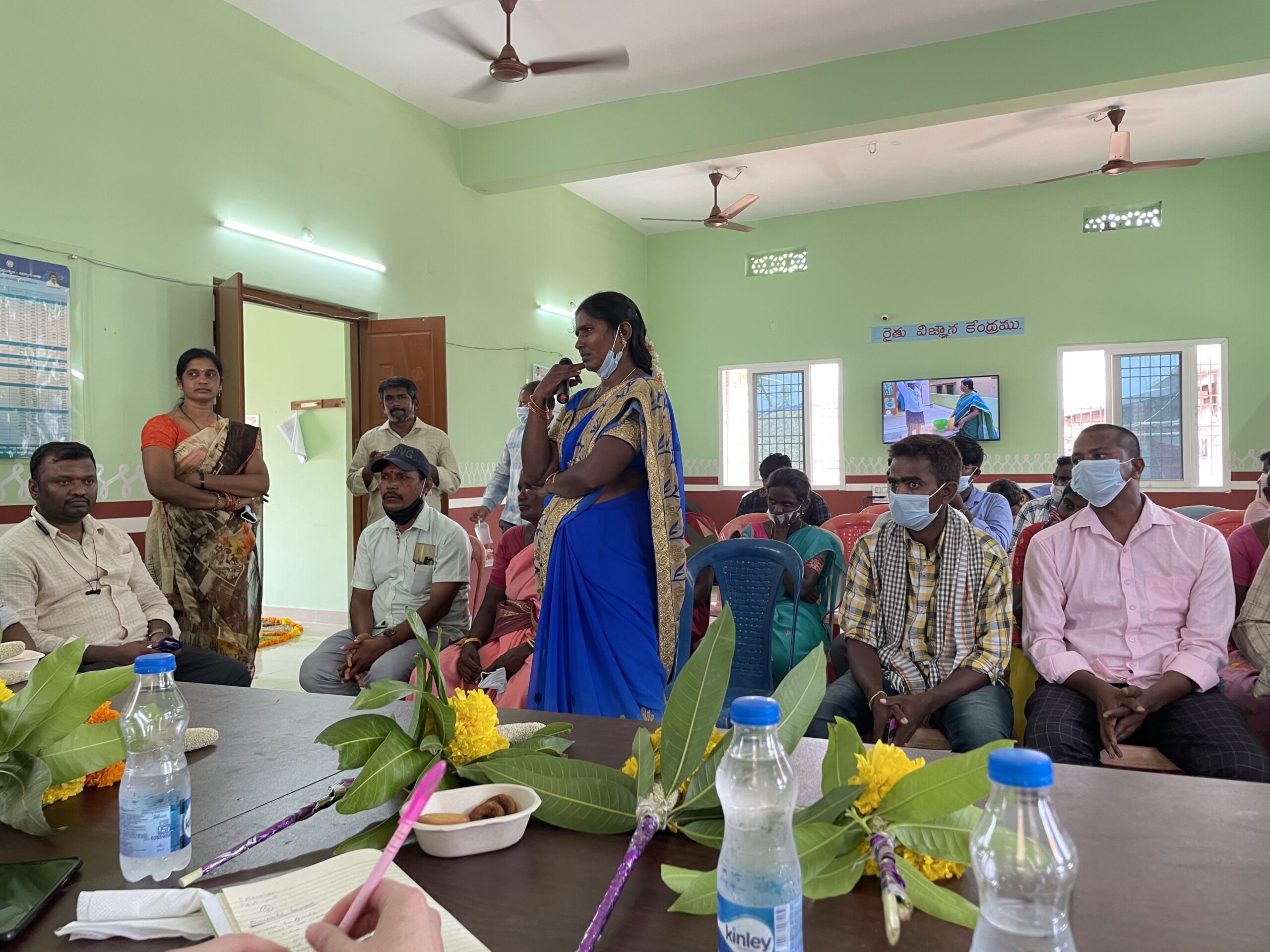To learn more about Digital Green’s AI-powered platform and how it impacts small-scale farmers in India, Ethiopia, Kenya, Nigeria and Brazil, we encourage you to sign up for our newsletter.
Digital Green’s Field Visit in Guntur: Digital Extension & Opportunities to Explore

May was an exciting month for us at Digital Green. After more than 2 years, our teams across India, Ethiopia, USA, and Kenya huddled together in Guntur district in Andhra Pradesh and Bengaluru to make our vision of digitized farmer networks a reality, and discuss key themes emerging from our new strategy going forward.
This visit was marked by huge enthusiasm, as this presented a unique opportunity for teams to interact with one another, and to also witness our work in action in Guntur district, Andhra Pradesh. In Andhra Pradesh, Digital Green implements two programs –
Tech-Aided Resilient Agriculture (TARA), funded by the Walmart Foundation, improves the resilience and livelihoods of smallholder farmers with the efficient delivery of targeted, relevant, and timely agricultural advisories, and improves access to markets and market information. The program will reach 75,000 farmers, 30% of this number would consist of women farmers.
Enhancing Markets, Income & Resilience for Chili Farmers in Andhra Pradesh (E-Mircha), funded by the Bill & Melinda Gates Foundation, aims to test, evaluate and demonstrate a scalable and replicable digital model that integrates appropriate technology tools and platforms to deliver timely, high-quality advisory messages to chilli farmers in Andhra Pradesh and connect them to buyers. The aim is to improve the production quality of at least 10,000 chilli farmers.
On the 2nd of May, teams were divided into two groups to visit separate locations – one focusing on the digital extension and the other focusing on the use of digital data collection tools and chilli quality assaying. This blog focuses on the learnings and observations of the digital extension field visit; stay tuned for a blog about the digital data collection and quality assaying field visit.
 The digital extension team visited the Ganapavaram and Aakulaganapavaram farmer producer organizations (FPOs) in Naagireddypalem village, an hour away from Guntur city. Farmers and extension agents gathered to share their experiences on how advisories received through video extension and chatbots have changed their outlook on their natural farming practices and have helped them to lead healthier lives.
The digital extension team visited the Ganapavaram and Aakulaganapavaram farmer producer organizations (FPOs) in Naagireddypalem village, an hour away from Guntur city. Farmers and extension agents gathered to share their experiences on how advisories received through video extension and chatbots have changed their outlook on their natural farming practices and have helped them to lead healthier lives.
We were introduced to the 9 principles of APCNF (Andhra Pradesh Community Managed Natural Farming), which promotes sustainable farming practices. Natural farming, we learned, has become a way of life for these farmers and not necessarily just based on their livelihoods but also stay healthy. Vemula Padmavati, a woman farmer proudly proclaimed “as a farmer, if we are not growing healthy and staying healthy, how will all of you eat healthy and stay healthy?”. Model farmers like herself have been the change agents among their communities.
What is to note is the digital literacy amongst the members of these FPOs, and the high participation from women farmers who spoke of how cost-effective this practice has been for them, and how they came to know about it in the first place. However, while the high participation of women farmers was clear, there is still the question of how much decision-making power they have. Video extension has played an instrumental role in the shift towards natural farming, especially to get the buy-in from male counterparts in farming families. Now, these farmers are open to learning about new practices – a continued practice-driven forward through the Chatbot advisories that they receive on Whatsapp.
 “We only need to share our location to get 3-minute videos that are specific to our crops at any given point of time,” one farmer shared. During the pandemic, farmers’ digital connectivity increased as they also made a Facebook page for themselves that now consists of around 20,000 farmers in the area. There is quite a need for market-based information, particularly about prices and buyers, one challenge that they are still facing is the lack of price regulation for produce that is grown using natural farming practices. As these farmers are all well connected with access to smartphones, the Facebook group that they have created for themselves has been used to connect directly with consumers to obtain better prices for their produce. This provides the opportunity to build on our current solutions to add market and price-based information in the hands of farmers to help them with data-backed decision-making.
“We only need to share our location to get 3-minute videos that are specific to our crops at any given point of time,” one farmer shared. During the pandemic, farmers’ digital connectivity increased as they also made a Facebook page for themselves that now consists of around 20,000 farmers in the area. There is quite a need for market-based information, particularly about prices and buyers, one challenge that they are still facing is the lack of price regulation for produce that is grown using natural farming practices. As these farmers are all well connected with access to smartphones, the Facebook group that they have created for themselves has been used to connect directly with consumers to obtain better prices for their produce. This provides the opportunity to build on our current solutions to add market and price-based information in the hands of farmers to help them with data-backed decision-making.
Although the farmers that we visited in Andhra Pradesh were well connected and high in their digital literacy levels, we recognize that this is not the case for farmers that we work with across India or even farmers in Ethiopia and Kenya, where Digital Green also works. What we learned and gathered in our discussions was that a multi-channel approach should be taken into Digital Green’s future course of action and that there are also opportunities to influence partners to move towards gender inclusivity.